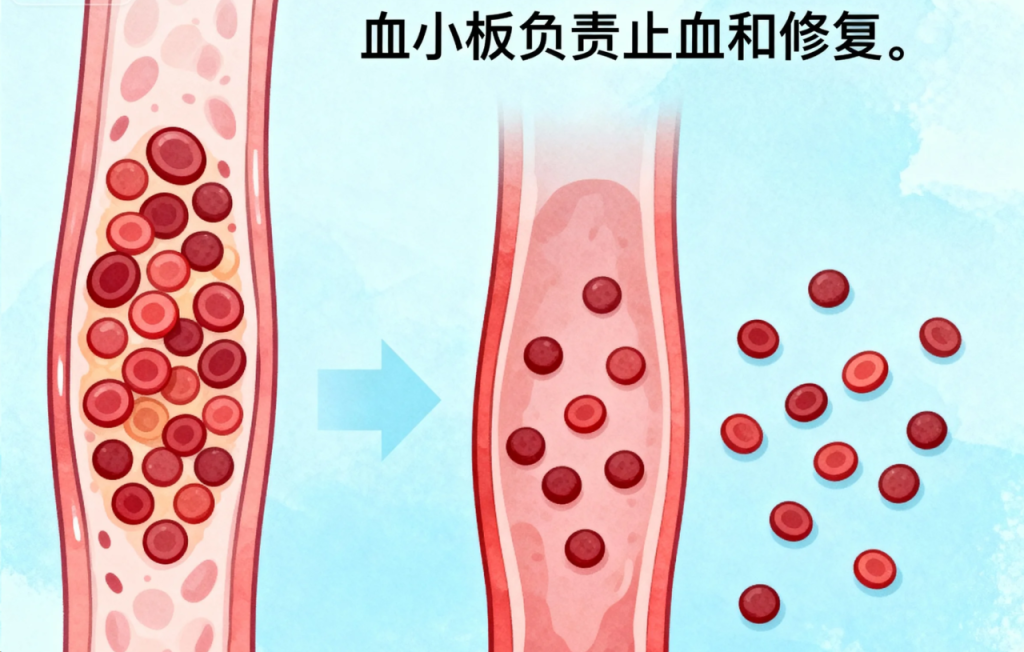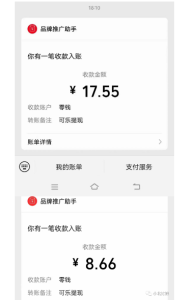When diagnosed with thrombocytopenia (low platelet count), many patients worry: “Does this mean I can’t live normally?” The answer is: you can, but your lifestyle will require smarter management. The goal is not fear, but adaptation — maintaining safety, preserving quality of life, and reducing bleeding risk.
1. Understanding what low platelets mean
Platelets are essential for stopping bleeding. When the count falls, you may notice: easy bruising, longer clotting time, nose or gum bleeding, or even more serious events (such as gastrointestinal or intracranial bleeding).

Nonetheless, the clinical objective is not to restore platelet count to “high normal,” but rather to keep it at a safe threshold where bleeding risk is low. For many adults without symptoms, a count of ≥30 ×10⁹/L may suffice for everyday activities. PMC+1
2. Daily “reinforcement” strategies
Exercise & movement
-
Avoid complete inactivity. Appropriate low-to-moderate intensity exercise helps circulation, vascular health and overall well-being.
-
Select low-impact, non-contact activities such as walking, swimming, gentle cycling or yoga.
-
Avoid high-risk activities (e.g., contact sports, heavy weights, extreme sports) especially when platelet count is very low (<20 ×10⁹/L) or if you’ve had recent bleeding.
-
After exercise, if you see new bruises, swelling or bleeding — pause and consult your doctor.
Nutrition & diet
-
Ensure adequate high-quality protein (fish, poultry without skin, tofu, eggs) to support platelet production and general health.
-
Eat vegetables and fruits rich in vitamin C, folate, vitamin K (e.g., broccoli, spinach, citrus) to support vascular and platelet function.
-
Limit alcohol consumption, as it may impair platelet production and affect liver health.
-
Be cautious with supplements/herbs. Some (e.g., large-dose fish oil, gingko) may interfere with platelet function or increase bleeding risk — check with your hematologist or pharmacist.
-
If you are also on anticoagulants or antiplatelet drugs, maintain a stable intake of vitamin K-rich foods (and consult your doctor before making large changes).
Environment & safety
-
At home: avoid slippery floors, pad sharp furniture edges, ensure illness or medication doesn’t make you prone to falls.
-
Carry basic stop-bleeding tools (such as gauze, compression bandage, cold pack), and if you are prone to nose/gum bleeding, include a small cold pack in your bag.
-
Use a soft-bristle toothbrush, inform dentists you have low platelets before any procedure.
-
Stop smoking, avoid second-hand smoke — tobacco irritates blood vessels and worsens bleeding risk.
-
If you are on antiplatelet/anticoagulant drugs (e.g., aspirin, clopidogrel, warfarin), ensure you are under supervision of both hematologist and cardiologist/nephrologist as needed. PMC
3. Monitoring & partnering with your doctor
-
Platelet count: Early phase — every 1–2 weeks; once stable — every month or every 2–3 months.
-
Bleeding symptom tracking: Keep a diary of new bruises, bleeding episodes (nose, gums, heavy menstruation), fatigue, activity changes.
-
Other lab checks: Liver and kidney tests, immune markers (since many platelet disorders relate to autoimmune or hepatic disease).
-
Consultation triggers: If platelet count suddenly drops (e.g., from 30 ×10⁹/L to <10 ×10⁹/L), or if new major bleeding or urgent surgery is required.
-
Treatment decision discussion: Ask your hematologist whether therapy is required now, or observation suffices — many guidelines suggest that patients with mild bleeding and platelet ≥20 ×10⁹/L may be observed rather than automatically treated. ashpublications.org+1
4. Psychological and quality-of-life support
-
Living with thrombocytopenia doesn’t mean life stops — but it means adapting. Counselling may help manage anxiety, fatigue or “fear of bleeding”.
-
Consider keeping a simple “bleeding log”: date, new bruises, activity, medication, diet. This helps both you and your doctor evaluate risk trends.
-
Inform friends/family about your condition (especially in outdoor or travel contexts) so they know how to assist if bleeding occurs.
-
Plan for safe travel, ensure you have medical contact information in your luggage, and carry a simple card noting “low platelets — bleeding risk”.
![图片[4]-者创网-用药小知识,健康科普,健康知识,疾病资讯,癌症资讯,药品最新资讯,仿制药,原研药,印度,孟加拉,印度仿制药,孟加拉仿制药Daily Management Suggestions for Thrombocytopenia: Living Well with Low Platelets-者创网-用药小知识,健康科普,健康知识,疾病资讯,癌症资讯,药品最新资讯,仿制药,原研药,印度,孟加拉,印度仿制药,孟加拉仿制药者创网](https://pic-out.zhimg.com/v2-e11db3547d4e74825bfb9c17dad1b6b5~resize:1440:q75.png?animatedImageAutoPlay=false&animatedImagePlayCount=1&auth_key=1761926069-0-0-4aa233aa1ce53a5953881dee79b6457a&bizSceneCode=article_draft&expiration=1761926069&incremental=false&mid=90dfb2c6c4d67b0e843c59e33624d41a&overTime=60&precoder=false&protocol=v2&retryCount=3&sampling=false&sceneCode=editor_copy_outbound&source=bfcaadb1)
5. When to seek urgent medical help
Seek immediate care if you experience:
-
Black stool, vomiting blood, or signs of intracranial bleeding (severe headache, weakness on one side, speech disturbance)
-
Repeated uncontrolled nose or gum bleeding
-
Sudden large drop in platelets without explanation
-
Fever, chills, night sweats plus low platelets (possible infection activation)
-
Preparing for surgery or dental extraction and your platelet count is extremely low — treatment may be needed beforehand.
Conclusion
Thrombocytopenia doesn’t mean giving up — it means managing smartly. By combining sensible exercise, safe nutrition, home environment adjustments, regular monitoring and close communication with your doctor, you can live a full, active life. Remember: the aim isn’t simply elevating platelet counts, but achieving stability, minimizing bleeding risk, and maintaining quality of life.
Eltromin 25/50 Eltrombopag
Enatinib 4/10 Lenvatinib
Lynparib Olaparib
Coltinib Upadacitinib
Alvonib Osimertinib
Techno
Well-known pharmaceutical company in Bangladesh:https://www.radiantpharmacil.com


![图片[2]-者创网-用药小知识,健康科普,健康知识,疾病资讯,癌症资讯,药品最新资讯,仿制药,原研药,印度,孟加拉,印度仿制药,孟加拉仿制药Daily Management Suggestions for Thrombocytopenia: Living Well with Low Platelets-者创网-用药小知识,健康科普,健康知识,疾病资讯,癌症资讯,药品最新资讯,仿制药,原研药,印度,孟加拉,印度仿制药,孟加拉仿制药者创网](https://pic-out.zhimg.com/v2-71cc16b32d35f8cd4459f3fdcc9e1ddd~resize:1440:q75.png?animatedImageAutoPlay=false&animatedImagePlayCount=1&auth_key=1761925998-0-0-c3bd208d2ba9fa592f52b5d2ff7183b0&bizSceneCode=article_draft&expiration=1761925998&incremental=false&mid=90dfb2c6c4d67b0e843c59e33624d41a&overTime=60&precoder=false&protocol=v2&retryCount=3&sampling=false&sceneCode=editor_copy_outbound&source=bfcaadb1)
![图片[3]-者创网-用药小知识,健康科普,健康知识,疾病资讯,癌症资讯,药品最新资讯,仿制药,原研药,印度,孟加拉,印度仿制药,孟加拉仿制药Daily Management Suggestions for Thrombocytopenia: Living Well with Low Platelets-者创网-用药小知识,健康科普,健康知识,疾病资讯,癌症资讯,药品最新资讯,仿制药,原研药,印度,孟加拉,印度仿制药,孟加拉仿制药者创网](https://pic-out.zhimg.com/v2-e0e046e4d2311215da628583d6a3cf74~resize:1440:q75.png?animatedImageAutoPlay=false&animatedImagePlayCount=1&auth_key=1761926027-0-0-3adaf663c5d00a2626c1e54ebfc2f188&bizSceneCode=article_draft&expiration=1761926027&incremental=false&mid=90dfb2c6c4d67b0e843c59e33624d41a&overTime=60&precoder=false&protocol=v2&retryCount=3&sampling=false&sceneCode=editor_copy_outbound&source=bfcaadb1)















暂无评论内容